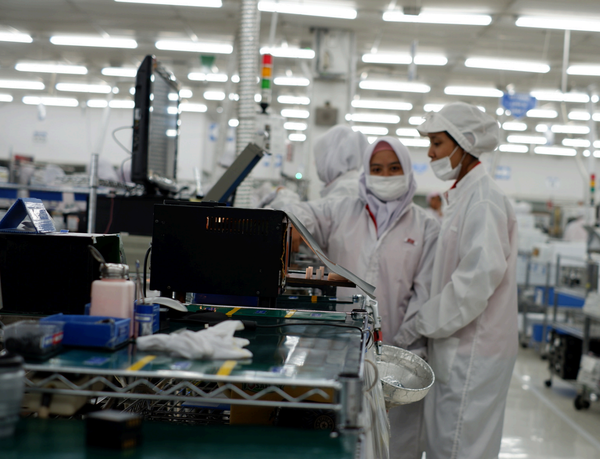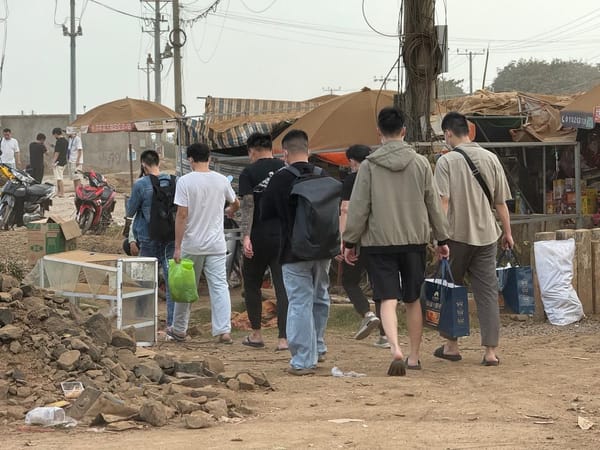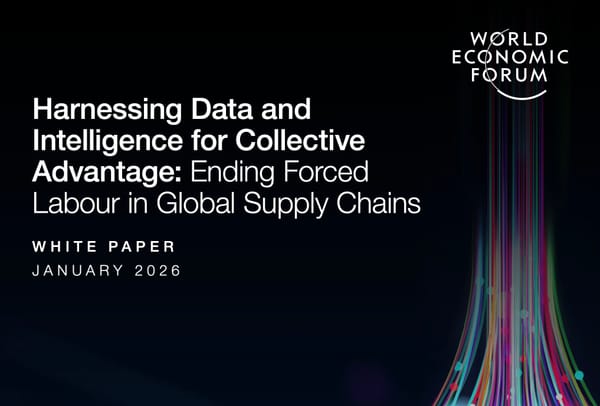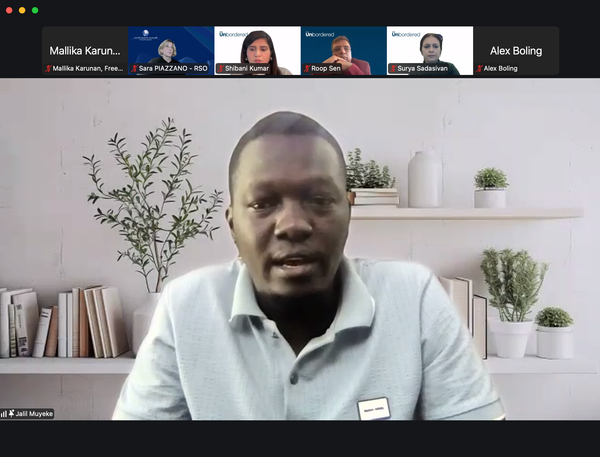EHAAT practitioners tackle systemic barriers to improve survivor outcomes
East African CSOs confront the poverty and legal gaps that drive re-trafficking, human rights groups say the EU’s new deportation proposal focuses on punishment not protection, and experts urge Pakistan to protect children from trafficking disguised as adoption.
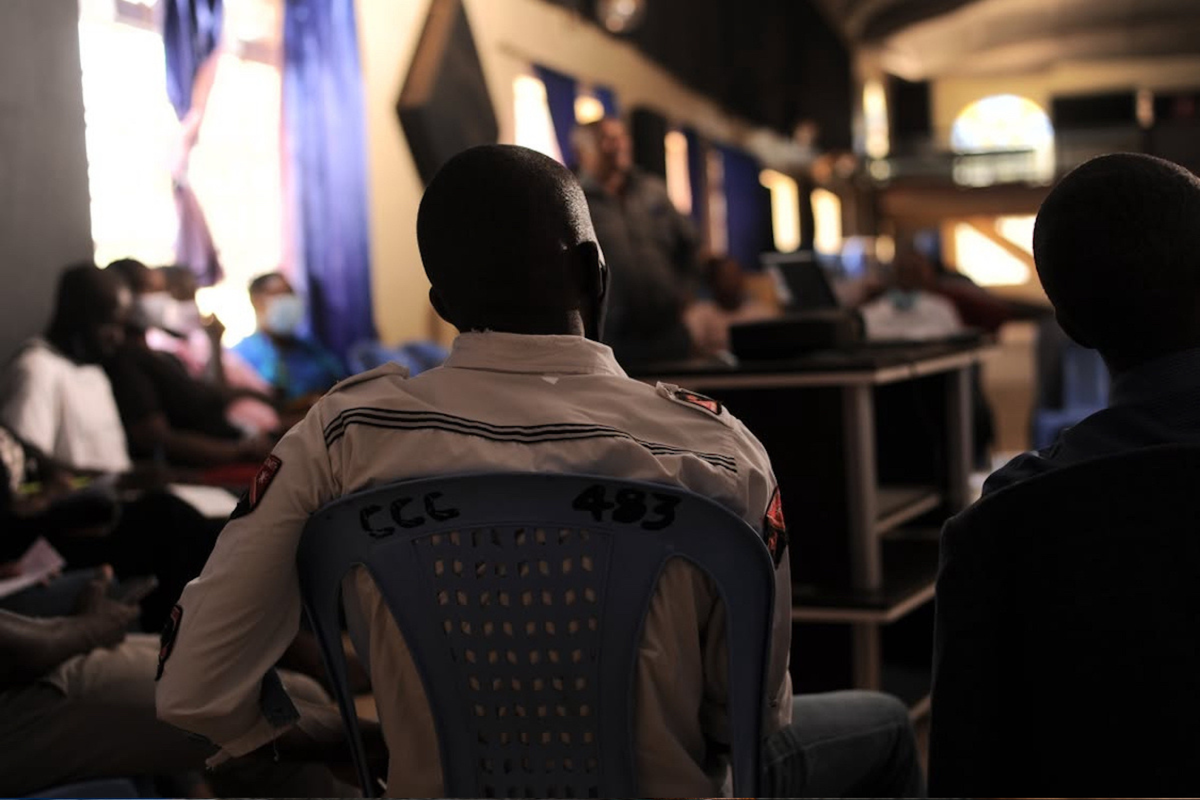
Anti-trafficking practitioners from across East Africa came together last week to discuss survivor outcomes and the persistence of key barriers to progress, building on the findings of our regional routes mapping report. The exchange, between members of the East and Horn of Africa Anti-Trafficking (EHAAT) Network, underscored how poverty and a lack of accessible legal aid combine to drive high rates of re-trafficking across the region, and how addressing these challenges requires both systemic reform and practical support at the community level.
Participants described how survivors from countries including Djibouti, Ethiopia, Kenya, Somalia, South Sudan, and Uganda often return home with no income, no job, and no means to support themselves or their families. Under these conditions, many take the same risks again in their search for employment, even when they know the dangers. Some believe that, having been exploited once, they understand how to “beat the system”, only to be deceived again. Others are influenced by recruiters who promise better conditions or by peers who appear to have migrated successfully. Nearly 40 per cent of documented cases involved survivors who had already been trafficked before, with younger boys in particular among the most vulnerable. Practitioners emphasized that this cycle is not a matter of choice but of desperation – with no viable alternatives, many survivors return to the very pathways that previously led to exploitation.
Compensation, which could help offset poverty and reduce re-trafficking risks, is almost entirely absent. Of the 13 cases that recorded compensation of any kind, survivors had legal support in every instance, yet just eight per cent of all documented cases involved legal aid. Without lawyers to guide survivors through complex and costly procedures, most never reach the point at which restitution is possible, and this lack of access to justice leaves them without redress and trapped in cycles of economic vulnerability. Practitioners noted that, while compensation does not erase the harm of trafficking, it can provide survivors with resources to rebuild their lives, pay for education or livelihood opportunities, and resist the economic pressures that often push them back into risky situations.
Across the region, practitioners detailed why legal aid remains so limited. In Kenya, a Victim Assistance Trust Fund exists but has not been fully operationalized, leaving survivors without consistent support. NGOs rely heavily on pro bono lawyers who often lack training in trafficking law; when organizations do employ in-house lawyers, they are typically a team of one. Other colleagues cannot provide legal backup, while peers in the legal community rarely understand the complexities of trafficking cases. This isolation makes case follow-up difficult and weakens survivor protection. As one participant stressed, without networks of trained lawyers to share expertise and support one another, even the most committed advocates struggle to carry cases forward.
Uganda faces similar challenges, with a very small pool of lawyers available to support survivors, almost no expertise in civil litigation for trafficking cases, and limited awareness of trafficking within the judiciary. This means survivors who try to pursue justice often encounter procedural delays, dismissals, or rulings that fail to recognize the realities of trafficking. In Ethiopia, insecurity makes it difficult to pursue cases once survivors return to their villages, while the fact that traffickers are often family members discourages victims from seeking justice at all. Practitioners described how survivors in these situations face impossible choices: either remain silent and unprotected, or risk exposing relatives and alienating their communities. In Somalia, survivors face a legal framework that exists on paper but is weakly enforced. Pro bono services are scarce, particularly outside urban centers, and survivors often fear engaging with courts. Even where laws exist, they provide little protection without enforcement.
The discussion reinforced what the dataset had already shown: survivors are being re-trafficked not simply because reintegration has failed, but because they return to poverty with no compensation and no functioning legal support. By sharing these on-the-ground realities, EHAAT members are moving the conversation beyond documenting outcomes to identifying concrete entry points for change. Expanding access to legal aid, operationalizing compensation mechanisms, and building stronger networks of trafficking-trained lawyers were highlighted as urgent priorities for improving survivor protection and breaking the cycle of exploitation.
Here’s a roundup of other noteworthy news and initiatives:
More than 200 human rights organizations have condemned the European Commission’s proposed “Return Regulation”, warning it would expand detention, deportations, surveillance, and discriminatory policing while stripping away human rights safeguards. They urge EU institutions to reject the plan, calling instead for policies focused on safety, dignity and inclusion rather than punitive migration control.
The Ethical Trading Initiative (ETI) has published its official position in support of mandatory human rights and environmental due diligence (mHREDD), arguing that voluntary measures are insufficient to prevent abuses in global supply chains. Drawing on broad consultation, ETI outlines 10 core principles for strong, enforceable regulation in the UK and beyond, including alignment with international standards, meaningful stakeholder engagement, and sanctions with access to justice.
The U.S. Treasury’s Financial Crimes Enforcement Network (FinCEN) has issued a notice urging financial institutions to detect and report financially motivated sextortion, framing it as both an abuse and a financial crime. The alert highlights how perpetrators increasingly use AI-generated “deepfakes” and virtual currencies to extort victims, underscoring the evolving technological tools behind these schemes.
Recent adoption scandals in Pakistan have exposed deep flaws in the country’s child protection system, with unregistered orphanages and weak enforcement enabling minors to be presented as “paper orphans” and trafficked under the guise of adoption. Analysts argue that beyond prosecuting individuals, Pakistan must urgently enforce existing laws and invest in family-strengthening and alternative care to protect children from exploitation.
A Johannesburg court has sentenced seven Chinese nationals to 20 years in prison each for trafficking 91 Malawian workers and forcing them to work under abusive conditions at a South African factory. The victims were confined under armed guard, denied basic freedoms, and made to work long hours without safety protections.
The fourth Tech Against Trafficking Summit will be held 4–5 November 2025, at Microsoft’s headquarters in Redmond, WA, bringing together global tech leaders, anti-trafficking practitioners, policymakers, and lived experience experts. The event will feature interactive workshops and sessions on using technology to tackle forced labour and online-facilitated trafficking, with a keynote address by former UK Prime Minister Theresa May.
The ElectroPower Fund is offering grants for worker-led initiatives against forced labour in electronics and nickel supply chains in Southeast Asia. Applications are open until 14 November 2025 for projects beginning in 2026.

